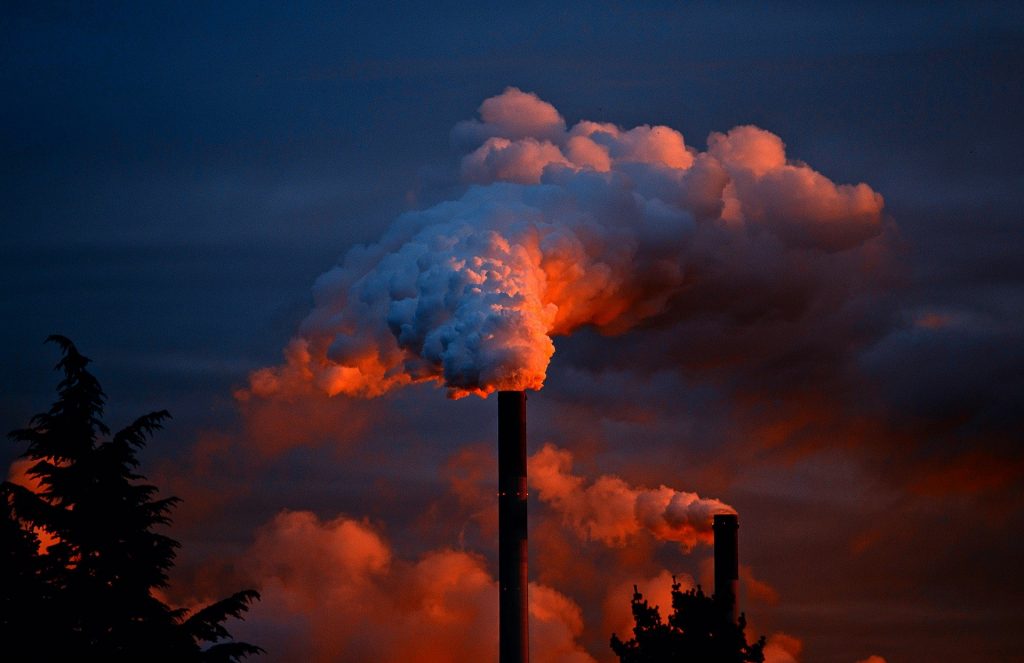Written by Rahul Koonantavida and Edited by Catherine Zhang

Ever since the advent of the Industrial Revolution in the 1800s, air pollution has been a problem that has consistently plagued our planet. The environment suffers—ice caps are melting, natural disasters are becoming more sporadic, and temperatures are increasing steadily. Additionally, humans undergo significant health effects; for example, they can often develop a plethora of cancers or diseases, such as lung cancer and bronchitis [1]. As such, according to a study conducted by the American Thoracic Society, researchers found that the potential health benefits following air pollution reduction are extremely significant [2]. Specifically, people would be at a much lower risk of developing serious health conditions like asthma and lung cancer. If the results of these findings are taken seriously and greater efforts are taken to reduce our air pollution, many lives could be saved.
The dangers of air pollution emphasize why its reduction is so beneficial. Researchers from Colorado State University determined that air pollution is linked to a greater frequency of violent crimes. Specifically, they found that in areas with greater amounts of pollutants per cubic meter in the air, there was a correlation with an increase in violent crimes[3]. Currently, no concrete explanation has been provided on why pollution is linked to a higher frequency of violent crimes, but a strong correlative nature was established nonetheless. Another large scale study conducted by Monash University analyzed data on air pollution and mortality in 652 cities around the world over the course of 30 years and concluded that exposure to air pollution is directly linked to a higher likelihood of premature death [3]. They concluded that exposure to two types of particles, PM10, inhalable particles, and PM2.5, fine particles, are linked to increases in total deaths [3]. These particles absorb toxic components and penetrate the lungs, eliciting serious health concerns. Taking these studies into consideration, the fact that air pollution is dangerous is clear— it has negative effects in both the short and long term on both human health and behavior.
Therefore, the concern of how to effectively handle lessening air pollution must be addressed. In their study, the American Thoracic Society researchers observed the effects of air pollution reduction in a variety of environments [4]. For example, after a one-week smoking ban in Ireland, there was a 13% drop in all-cause mortality, a 26 percent reduction in ischemic (also known as a blood supply restriction), heart disease, a 32 percent reduction in stroke, and a 38 percent reduction in lung disease [4]. Moreover, a 13-month closure of a pollutive steel mill in Utah reduced hospitalization rates for pneumonia and asthma by half [4]. Areas that are already highly polluted will have to implement more changes than these examples to see significant benefits, but the point remains the same—the benefits of reducing air pollution are significant and should be adamantly pursued. The results of this study suggest that the many health risks brought about by air pollution could be avoided with diligent efforts from the people contributing to it. By placing a greater focus on reducing air pollution, human health and life spans may be greatly improved, and the problem that has plagued us for decades could finally be put to an end.
References:
[1] National Geographic Society. “Air Pollution.” National Geographic Society, 9 Oct. 2012, www.nationalgeographic.org/encyclopedia/air-pollution/.
[2] Schraufnagel, D.E., Balmes, J.R., Matteis, S.D., Hoffman, B., Kim, W.J., Perez-Padilla, R., Rice, M., Sood, A., Vanker, A., Wuebbles, D.J. (2019). Health Benefits of Air Pollution Reduction. Annals of the American Thoracic Society, 16: 1478–1487.
[3] Liu, C., Chen, R., Sera, F., Vicedo-Cabrera, A. M., Guo, Y., Tong, S., Coelho, M. S. Z. Z., Saldiva, P. H. H.N., Lavigne, E., Matus, P., Ortega, N. V., Garcia, S.O., Pascal, M., Stafoggia, M., Scortichini, M., Hashizume, M., Honda, Y., Hurtado-Diaz, M., Cruz, J., Nunes, B., Teixeira, J. P., Kim, H., Tobias, A., Íñiguez, C., Forsberg, B., Åström, C., Ragettli, M., Guo, Y., Chen, B., Bell, M. L., Wright, C. Y., Scovronick, N., Garland, R. M., Milojevic, A., Kyselý, J., Urban, A., Orru, H., Indermitte, E., Jaakkola, J. J.K., Ryti, N. R.I., Katsouyanni, K., Analitis, A., Zanobetti, A., Schwartz, J., Chen, J., Wu, T., Cohen, A., Gasparrini, A., Kan, H. (2019). Ambient Air Pollution and Mortality in 652 Cities. New England Journal of Medicine, 381: 2072–2075.
[4] Burkhardt, Jesse, Bayham, J., Wilson, A., Carter, E., Berman, J. D., O’Dell, K., Ford, B., Fischer, E.V., Pierce, J.R. (2019). The Effect of Pollution on Crime: Evidence from Data on Particulate Matter and Ozone. Journal of Environmental Economics and Management, 98: 102267.
